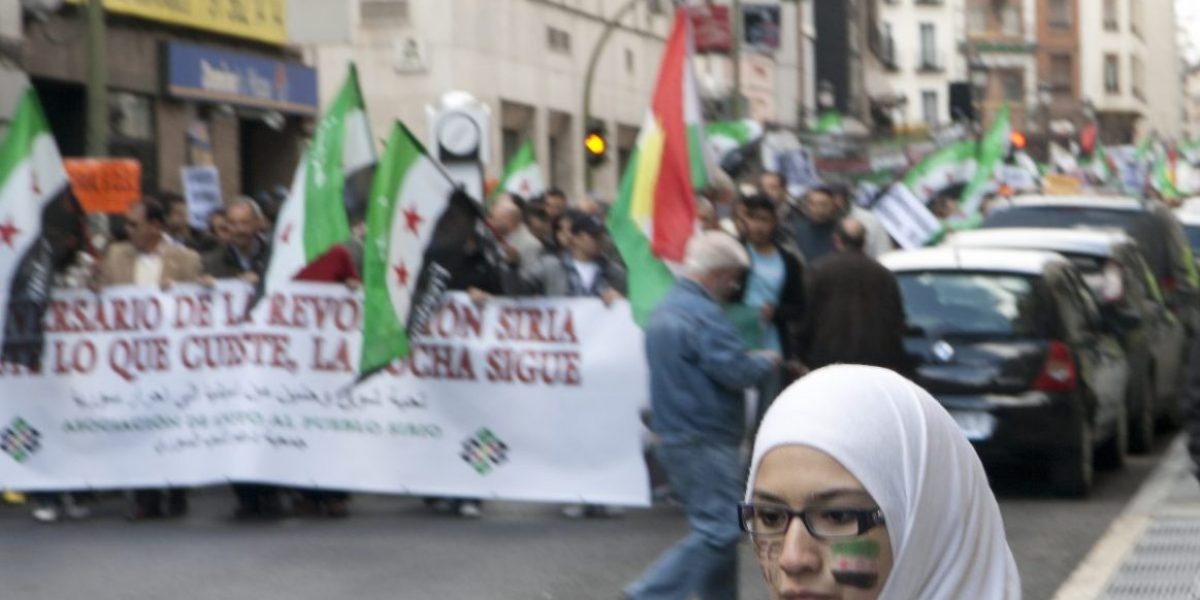In a state-centric world where territorial boundaries mark the outer limit of sovereign political power, secession affects all facets of political, economic and social existence. While Southern Sudan gears up for its long awaited independence celebrations, tensions along the north-south border, and unresolved questions regarding post-independence management of citizenship and the oil industry are raising concerns.
These may be symptoms of a temporary bout of separation anguish stalking the two Sudan’s. During May clashes in Abyei raised concerns of a return to armed north-south conflict. The armed confrontations in Abyei culminated in an AU-mediated settlement that will see the deployment of a fresh contingent of Ethiopian peacekeepers under UN auspices to demilitarise the (still disputed) border, and ultimately to keep southern and northern forces separate. The USA has submitted a draft resolution to the UN Security Council to pave the way for the deployment of 4,200 Ethiopian troops in Abyei. The force, provisionally called the United Nations Interim Security Force in Abyei (UNISFA) will be separate from the two other peacekeeping forces (UNAMID in Darfur, and UNMIS) already deployed in Sudan. The UNISFA force will be tasked with ensuring security in Abyei, and overseeing the demilitarisation of the border. It may be given additional responsibility to work with the Abyei police force to provide security at oil installations.
Yet, other symptoms of separation anguish showing in Sudan at this stage come in the form of threats and counter-threats northern and southern officials are making regarding the oil industry. Salva Kiir has reportedly been talking with the Kenyan president about using Kenyan port facilities to export oil. This will require the construction of more than 3000km of pipelines. This is clearly not a short-term solution to southern Sudan’s dependence on northern export, refinery and pipeline infrastructures. Meanwhile President Bashir has warned that if a new deal on payment for the use of infrastructure in the north is not reached by 9 July, he will shut pipelines down.
In addition to the high-politics of oil, the ongoing AU mediated negotiations between north and south Sudan still have to reach agreement on citizenship, splitting the country’s $38 billion external debt, and related matters. This means that although a new independent country is about to emerge from the swamps of the Sud, a lot of work remains to be done to smooth over disputes that define this gargantuan divorce case.
But, between all the bad news, leaders from both northern and southern Sudan should be commended for the restraint with which they are handling explosive issues. The agreement to demilitarise the Abyei region, and to facilitate the deployment of Ehtiopian peacekeepers is a signal of willingness on the part of northern and southern Sudan to ease tensions and find workable solutions to points of contention. The agreement on Abyei also reflects positively on the AU mediation effort led by Thabo Mbeki.
For southern Sudan, the 9th of July will be a great moment of historical accomplishment and celebration. By contrast, however, northern Sudan will wake up to a country that cannot claim to be Africa’s largest (measuring 2 million sq km) any longer. More importantly, it will forfeit 75% of its oil reserves, while the minister of Finance and National Economy, Ali Mahmood Hassanein, recently indicated that the north will lose 36.5% of its income after the south becomes independent.
Recently the IMF warned that northern Sudan has to prepare itself to adapt to what it calls a ‘permanent shock’ to its economy due to loss of revenue. What further complicates the north’s economic prospects is the fact that it is still targeted with sanctions that limits its access to sources of international finance. Economic woes, the need to redefine and strategically project its power along the new border with the south, and voices of discontentment with the Khartoum government will call for careful political manoeuvres to keep the northern political realm stable after 9 July.
When India and Pakistan was split into two countries in the late 1940s, the mass migration of people, untold atrocities, and severe tensions between the two new political entities characterised the process. This shows that although it may seem simple enough to draw a new border and announce the establishment of a new state, such a move could have significant negative social and economic impacts.
This calls for significant continued support of mediation efforts to keep leaders in the north and south talking about contentious issues after 9 July. Thabo Mbeki’s efforts as chair of the AU High Level Implementation Panel for Sudan to mediate, and shepherd talks along when all seems to be lost (as recently as May it was feared that Abyei may spark yet another north-south war) may be needed for a long and tense transition to stabilising relations and borders between the two new Sudan’s.
A crucial challenge Southern Sudan will face after 9 July does not only pertain to its relations with the north. Since April 2010 a worrying trend of rebellions against the SPLM/A emerged. In order to safeguard its future and ensure internal stability the newly independent state will have to fast-track internal peace-building measures and address internal flashpoints such as land conflicts. But, apart from the challenges, 9 July is a moment to celebrate the peaceful conclusion of the Comprehensive Peace Agreement, and to take a lesson from the AU’s sustained investment in mediating, and keeping the spirit of constructive engagement alive.








